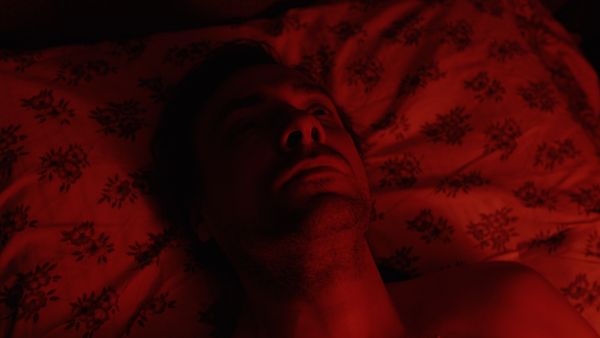Eye For Film >> Movies >> The Man Who Surprised Everyone (2018) Film Review
The Man Who Surprised Everyone
Reviewed by: Jennie Kermode

The expectation of impending death changes a person. It's something most people won't understand until very late in life - that sense of foreshortened future, of being cut off from things so close in time that one can almost see and touch them but that one will likely never be able to reach. No matter how much we concern ourselves with social convention, all of that falls away in the face of death. For those unwilling to resign themselves to it, nothing can get in the way of the fight for life.
Yegor (Evgeniy Tsyganov) has not resigned himself to death? How could he? Until recently, his whole life was focused on the future. His wife Natalia (Natalya Kudryashova) is expecting their second child. As a forester, he works every day to tend to trees that will outlast everyone in the village, to tend to an ecosystem so vast, here on the edge of the Siberian Taiga, that it makes the life of any one individual seem a trivial thing - and yet he is bound to it. When a health check following an encounter with poachers reveals that he has cancer, he struggles to face it. Natalia, more immediately furious with the situation, finds another, more expensive doctor, but it doesn't help. She takes him to an Inuit shaman whose ritual magic can't help him either - but what the old woman does give him is a story.

Once upon a time there was a drake who feared death so he rolled in dust until he looked like a duck, blending in with the flock so that the Grim Reaper could not find him. To the desperate Yegor, it's inspirational. So he buys a dress and make-up, goes into the woodshed, and emerges as a woman.
The audacity of this act has to be understood in the context of an intensely traditional patriarchal society - indeed, since Russia has recently instituted laws banning the 'promotion of homosexuality', which is frequently confused with gender variation, it's a wonder the film itself made it to screens. It's also important to see it in the light of a folkloric tradition full of stories of transformation, which frequently takes place in the heart of the forest - and a literary tradition which has often held that salvation can only be found through acts of sacrifice that seem like madness to others. Like many a transformed woman (most famously the Little Mermaid created by Hans Christian Anderson, who wrote privately of a longing to have been born with a female body), the new Yegor cannot speak - perhaps to do so would break the spell, provide Death with too obvious a point of identification. And because she cannot explain herself, she can neither deflect the misapprehensions of those around her nor defend her humanity.
What follows is an examination of transphobia that might very well be impossible to undertake in present day Russian cinema in any other form. It's often hard to watch and viewers should be aware that there are scenes of sexual violence. It extends beyond Yegor herself - her son is beaten up at school, her wife so shamed that eventually she closes the door of their home to her. Yet there is something between this couple that eludes Natalia's attempts to escape the stigma and Yegor's attempts to separate completely from her past identity. Is it strong enough to save them.
All the more powerful because of its deep roots in myth, this is a film shot in patient, observational style, in tones of grey and green and brown. Damp air filters the light and one can almost smell the forest that surrounds and dominates everything even in the clearing where the village is located. The sense is of a settlement under siege, only just holding on to its sense of itself in the face of all that wildness. By crossing a boundary, Yegor allies herself with the forest to a degree that she never has before. By focusing everything on survival she becomes one of its creatures - as are all the villagers, of course, but they can't see it because Death isn't yet looking for them.
This is an astonishing piece of cinema. One hopes that when Russia eventually recovers from its own state of fearfulness, it will be accorded the classic status it deserves.
Reviewed on: 22 Feb 2019













